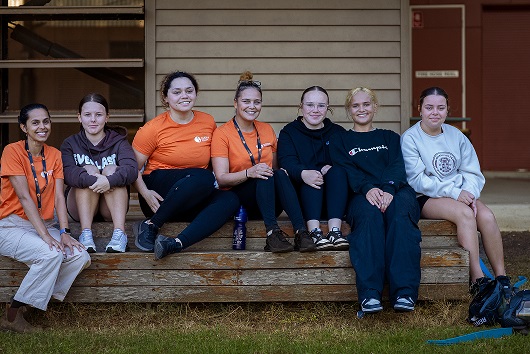
A groundbreaking program is proving transformative for the learning outcomes of thousands of Indigenous students across Australia, improving their self-confidence, educational aspirations, and cultural knowledge.
A new study, conducted by Aurora Education Foundation, has highlighted the impact of the organisation’s RISE (Redefining Indigenous Success in Education) program, which has been working with thousands of Indigenous students across Australia to lift learning outcomes.
And the research comes at a crucial time, with reports showing persistent systemic barriers that Indigenous students face, and which are putting their academic achievement levels up to five years behind their non-Indigenous peers.
The RISE Impact Report 2024 revealed a remarkable 116% increase in Indigenous students' awareness of their family history and culture, a 22% increase in the proportion of students who felt confident in achieving their goals, and a 12% increase in the proportion of students who think a lot about their future goals.
Data relating to parent and carer engagement has found a 176% increase in the proportion of parents and carers who spoke to their child daily about work and study plans, and a 28% increase in the proportion of parents and carers who understood the subjects their child needed to take to go to university.
“We’ve been doing ‘holistic learning’ for 65,000 years”
Aurora’s CEO Leila Smith said it is important to remember that what is referred to as ‘holistic learning’ in today’s education system has simply been ‘learning’ for Aboriginal and Torres Strait Islander people for more than 65,000 years.
“So, when we talk about RISE and the importance of encouraging Indigenous students in ways that go beyond academic outcomes, this is designed to tap into the knowledges, perspectives and approaches that have sustained our people for millennia,” Smith told The Educator.
“The value of putting culture and community at the core of Indigenous students’ learning is also backed by decades of Indigenous-led research, including insights generated through RISE.”
Smith noted that two of RISE’s three programs deliver levels of support beyond tutoring, with components including cultural immersion camps, tutoring, family engagement days, one-day engagements, and Elder and mentor engagement.
“By delivering multiple, different models to Indigenous students, we’re able to better understand the impact of educational interventions across a high school student’s experience,” she said.
“This means that we can get insights about the type of intervention and level of resourcing or support required to achieve outcomes for Indigenous students.”
A whole-of-community approach
Smith said engagement from parents and carers is critical to supporting Indigenous students in their education journey.
“Throughout RISE, we expect students will be encouraged and supported at home by both their family and community, which is something we help to facilitate through our family engagement days,” she said.
The program’s family engagement days provide an opportunity for parents and carers to directly engage with program staff, Elders and Indigenous mentors, as well as other families in the program. Smith said the feedback so far shows this initiative has been a success.
“We’ve received hugely positive feedback from these experiences, with many families stating that both their child’s attitude to school and academic outcomes improved as a result.”
A unique opportunity for real change
Smith said success for Indigenous students often comes in spite of the existing educational framework.
“In the Report, we reflect on the fact that despite significant investment, Australia’s education system is still not meeting the needs of Aboriginal and Torres Strait Islander students,” she said.
“There continues to be significant disparities in education outcomes between Indigenous and non-Indigenous children and youth. Indigenous perspectives, values and aspirations have not been taken into consideration in the design of education programs, policies, institutions and curricula.”
Smith noted that Indigenous education data has long been captured and interpreted by non-Indigenous people to tell stories about Indigenous failure, also pointing out that Indigenous people have been excluded from determining their own preferences and priorities in the development of education policy.
“We have an opportunity to change this,” she said.
“We have an opportunity to bring about the efficient and sustainable delivery of high-impact education to Indigenous students and leverage Indigenous Data Sovereignty principles and methodologies so that First Nations students can thrive in whatever path they choose.”
Smith said trust is key if this change is to become reality.
“While RISE will give us unique insights about what works in Indigenous education, there needs to be trust that Indigenous leadership does work, that Indigenous organisations and communities do know what’s best, that families have dreams beyond school attendance, and that sharing data and Indigenous Data Governance will lead to better outcomes.”
Honing in on what works
Smith said while the Foundation’s work on RISE to date has focused on design and implementation, the next phase will focus on consolidating process and policy improvements, increasing the participation of families and students in the evaluation activities, and sharing the learnings of the development and application of the RISE Outcomes Framework.
“Future datasets will be interpreted with a sharper focus on the support activities provided through RISE, how often they are required and when they work best,” Smith said.
“Opportunities for ongoing feedback from families and students will also continue to guide RISE, so that that our processes and internal policies deliver the most effective educational support experience possible.”


